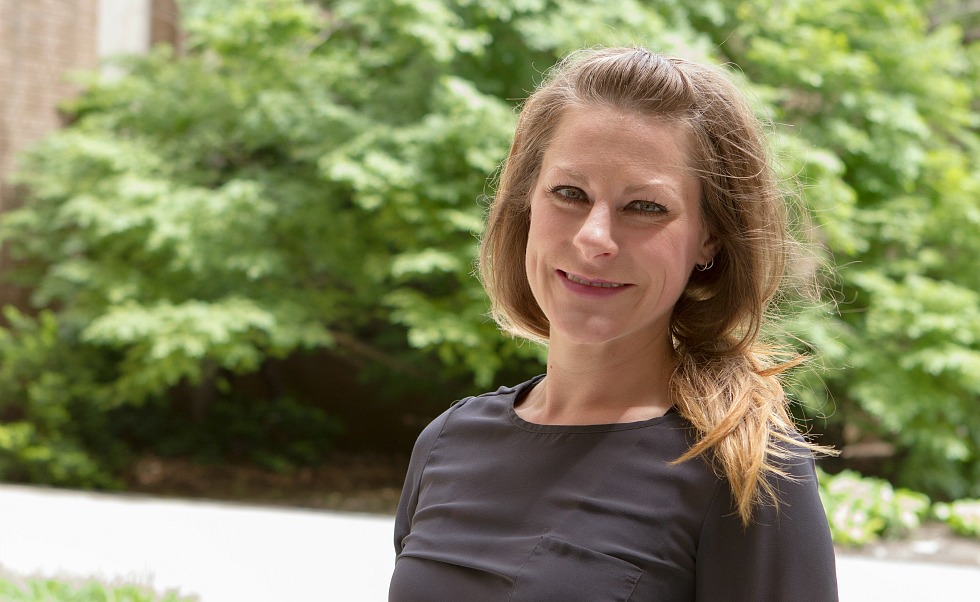McMaster researcher: “Family friendly” services may be key to coping with work-life conflict

McMaster researcher, Marisa Young has received an Early Researcher Award to look at how the availability of services and resources within neighbourhoods could help Canadians find the work-family balance they need.
BY Erica Balch
June 1, 2017
Few issues have such a profound impact on the lives of Canadians as the daily struggle for work-life balance.
“It’s a chronic and often unseen stressor,” according to McMaster researcher, Marisa Young who says recent studies show that work-family conflict is more detrimental to mental and physical wellbeing than bouts of unemployment and even exposure to second-hand smoke.
“It’s just constantly ongoing and wears away at the individual to the point where they almost can’t pinpoint what the stressor is,” she says. “Instead, it just becomes part of everyday life.”
So, how can individuals batter manage the competing expectations of work and home and the stress that often comes with it?
An assistant professor in McMaster’s Department of Sociology, Young says part of the solution could lie within our own neighbourhoods.
Young recently received an Early Researcher Award to conduct a Canada-wide study on how the availability of what she calls “family-friendly,” community-based programs, services and family resources within communities can help families better cope with work-life conflict.
“Up until now, research in this area has been really focused on individual level solutions – what can you do to find balance?” she says. “The research I’ve proposed looks at how the community influences individuals’ work-life experience, the conflict between the two, and then also mental health outcomes. So, really what can your neighbourhood do for you?”
To answer this question, Young and her research team are collecting data on the family-friendly services and resources available in different communities across Canada – resources such as child care, recreation facilities, libraries, after school programs, arenas, community centres – and adding that information to a community-level database. This database will ultimately be made available to the public, researchers and policymakers.
Since 2011, Young has also been conducting an ongoing series of interviews with 6000 Canadians across the country to find out about their experiences with work-family conflict.
The study will link the results of the interviews with the information in the database to create a picture of how the presence of services in different communities impacts individuals’ ability to cope with work-family conflict, and where there might be gaps. “The data will help us figure out which resources are most beneficial to parents and which locations need more of these resources,” she says.
According to Young, the research could also shed light on what she calls the “major discrepancies” between levels of work-family conflict in regions throughout the country.
“In northern Alberta, we’re seeing levels that are so much different than in southern Ontario,” she says. “You can only explain so much by what’s happening in individuals’ lives – you have to look at the geographical context and how people are being supported within communities to account for these differences across Canada.”
Young says, when it’s completed, she hopes the study will inform the development of community services and lead to greater investments in the kinds of supports families need.
“Work-family conflict has become so problematic,” she says. “We really need to think about allocating funding for better resources for parents who are struggling with the competing expectations of work and family.”
Young’s study, Family-Friendly Community Resources for Better Balance, includes historical data going back to 2011. Young will continue conduct interviews and gather data about services and resources available in communities until 2019.

